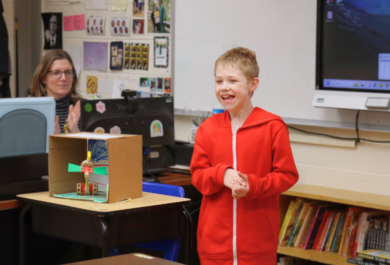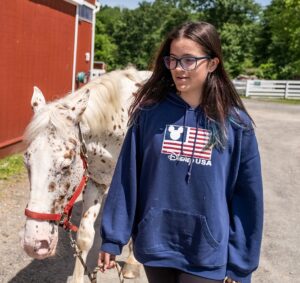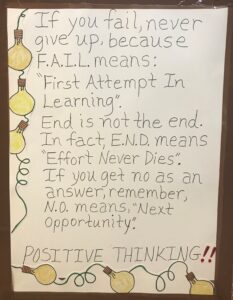Announcements

Self-advocacy is a person’s ability to communicate and assert their needs. People who self-advocate are more likely to experience success at school, at work, and throughout their lives. This skill takes on more importance for students with social-emotional challenges, who often lack understanding of their own needs, struggle to communicate effectively, and may rely more heavily on adults to communicate on their behalf.
“When we take care of everything for our youth, including removing obstacles in the way, we also take away their opportunity to learn how to do things for themselves,” says Kristin Licardi, Green Chimneys Associate Executive Director for Behavioral Health Services. “As students transition from high school to higher education, or to the world of work, the impetus for securing necessary accommodations and services falls away from the adults and directly to them. Without the necessary skills to advocate for themselves, these youth are left even more vulnerable.”

Alex is active in the farm’s equine program. Skills gained through nature-based activities, such as horsemanship, assist development of communication and problem-solving abilities.
Green Chimneys student Alex is determined to be a voice in residential care for youth. Alex knows firsthand the variety of challenges that exist for youth who need mental health services or have been in residential treatment. When the opportunity arose to join a forum to share their experience and talk about how the needs of youth are not always served, Alex was ready to sign up.
In August 2022, the New York State Office of Mental Health (OMH) hosted the “Youth Advisory Board Experience,” a two-day training event for youth ages 12-20 who have been recipients of mental health services. At first, 14-year-old Alex viewed it as an opportunity to get a break from their schedule and meet kids outside of Green Chimneys; but what they gained from participating in a confidential setting, where candor and openness was encouraged, was truly empowering.
“I was surprised how many people were there; it was only 20-30 kids and 4 adults,” Alex recalls. “There were NO parents so whatever you said was confidential and only heard by the people in the room. The environment was very open for conversation and sharing,” they explain.
 Over the course of two days, the youth worked in groups to delve into issues with services they received – from crisis hotlines to mental health support in school to hospital stays. Staff-guided training activities focused on where to direct concerns and ways to present them effectively; the groups then presented their concerns to state-level representatives.
Over the course of two days, the youth worked in groups to delve into issues with services they received – from crisis hotlines to mental health support in school to hospital stays. Staff-guided training activities focused on where to direct concerns and ways to present them effectively; the groups then presented their concerns to state-level representatives.
“The opportunity to be taken seriously was validating,” says Alex. “It also meant a lot to talk to people who were in a position to bring feedback to the attention of the right people, the ones responsible for the programs and services we discussed.”
That December, Alex was invited to participate in the next level of this advocacy project, which is specific to youth with experience in residential treatment programs. “Learning to think ‘What can I do about this? Who can I talk to who can do something?‘ and having resources so that I can use my voice, can make things better for so many kids.” We are proud to know strong students like Alex who are trying to make a difference!

Crowned the best for falconry in medieval times, gyrfalcons were once reserved for kings. As the largest falcon in the world, with exquisite plumage ranging from bright white to deep charcoal, gyrs are revered for their powerful skill of flight. Their long wings make hunting waterfowl from 3,000-feet-high a feasible and fantastical feat. This falcon was flown in the sport of falconry for several years.